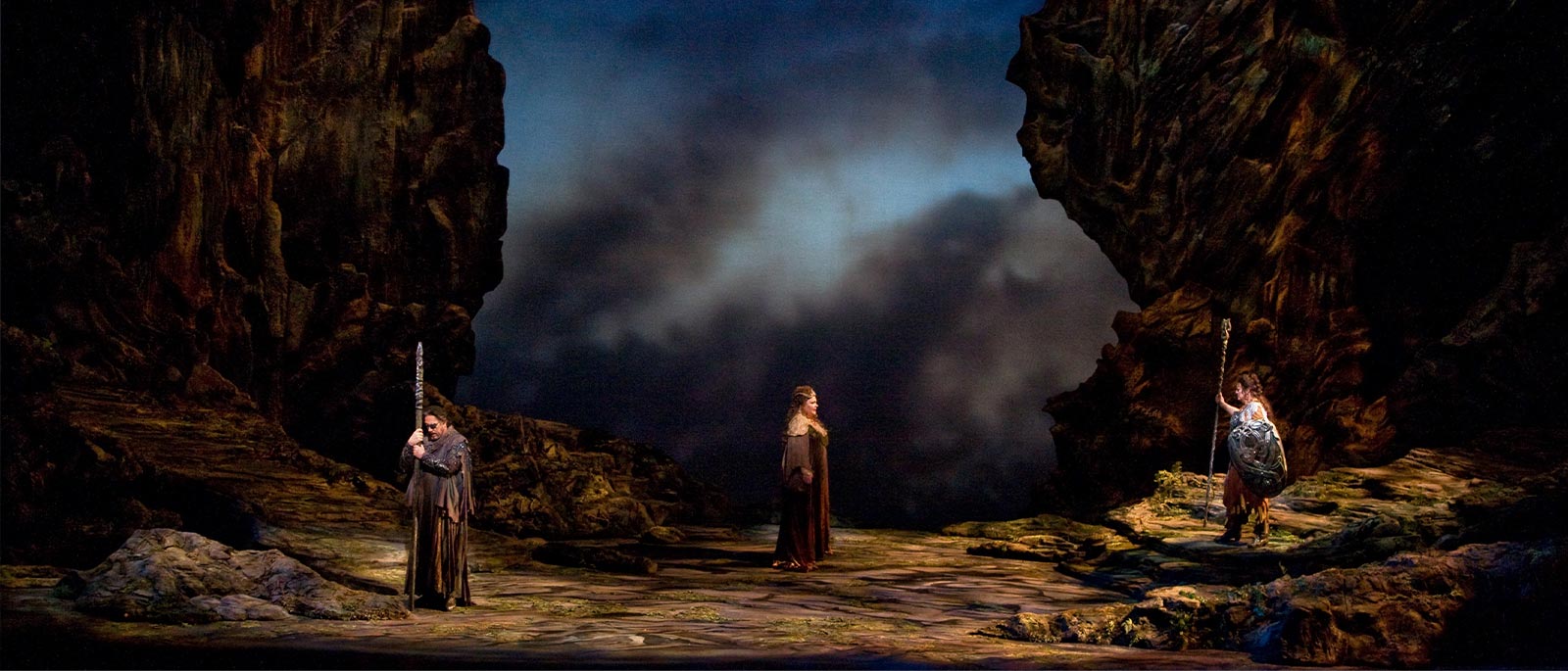
Wagner’s Norse Obsession
Mythology was a good match for Wagner’s theatrical temperament, providing a steady supply of gods, goddesses, and psychosexual dynamism to satisfy his rich and ingenious imagination. Below, learn more about the composer’s Nordic sources of inspiration. By Kamala Schelling
Richard Wagner was fascinated by folk tales and medieval legends. Like many 19-century intellectuals, he felt that these stories held profound truths about contemporary culture and society, and for much of his adult life, he immersed himself in the great sagas of Norse mythology. Wagner was particularly intrigued by the story of the hero Siegfried, and when he decided to write an opera on the subject, he turned to five 13th-century sources for inspiration: The Poetic Edda, an anonymous Icelandic collection of Norse myths; The Prose Edda, a collection by the medieval Icelandic scholar Snorri Sturluson; The Nibelungenlied, a German epic about the tribe of “Nibelungs”; the Norse Völsunga Saga, about Siegfried’s“Völsung” tribe; and the Old Norse narrative The Saga of Didrek of Bern.
Wagner freely adapted the Norse stories to suit his own artistic needs, yet parallels between his characters and their Norse counterparts remain. A brief overview of the characters in Das Rheingold illustrates this well. Wotan is based on Odin, the one-eyed king of the gods. Odin is one of the Aesirs, warrior gods who live in the land of Asgard. The English word “Wednesday” comes from Odin’s name—if you say the phrase “Odin’s day” out loud, the connection becomes more obvious. Fricka is based on Frigg, the queen of the Aesir gods and Odin’s wife; her name gives us the word “Friday.”
Fricka’s brother Donner is based on the god Thor, whose name is the basis of the word “Thursday.” Thor’s most famous attribute is his magic hammer, which produces thunder and lightning when it strikes things; in fact, Donner means “thunder” in German. In Norse mythology, Thor is Odin’s son (and not his brother-in-law, as he is in Das Rheingold). Fricka’s sister Freia is based on Freya, most beautiful of all the gods, while their brother Froh is based on the Norse god Frey. Freya and Frey are part of the Vanir tribe of harvest gods; after a battle between the Aesir and Vanir, Freya and Frey remained in Asgard to help establish a lasting peace between the two tribes. Loge is based on Loki, an extremely clever trickster who can change his shape at will. Since Loki is half god and half giant, his loyalties can waver. Nevertheless, his remarkable ability to solve even the trickiest of problems makes him a vital member of the gods’ society. And Erda is based on the goddess Jord, who in Norse mythology is Thor’s mother.
Kamala Schelling is the Met’s Educational Content Manager.